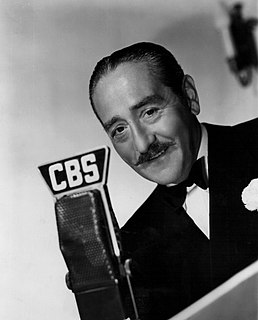A Quote by H. L. Mencken
No reporter of my generation, whatever his genius, ever really rated spats and a walking stick until he had covered both a lynching and a revolution.
Related Quotes
You know something?" He lifted his head, and when he turned to me, he had this strange look in his eyes. Almost as if he was really seeing me for the first time. "I don't think I ever really lived until this. I've never done anything that mattered before, but now I'm fighting to save my life, and yours. And I know it sounds really cheesy and lame, but I don't think I ever really felt alive. Not until I met you.
Billy covered his head with his blanket. He always covered his head when his mother came to see him in the mental ward - always got much sicker until she went away. It wasn’t that she was ugly, or had bad breath or a bad personality. She was a perfectly nice, standard-issue, brown-haired, white woman with a high school education. She upset Billy simply by being his mother. She made him feel embarrassed and ungrateful and weak because she had gone through so much trouble to give him life, and to keep that life going, and Billy didn’t really like life at all.
Whatever the country, capitalist or socialist, man was everywhere crushed by technology, made a stranger to his own work, imprisoned, forced into stupidity. The evil all arose from the fact that he had increased his needs rather than limited them; . . . As long as fresh needs continued to be created, so new frustrations would come into being. When had the decline begun? The day knowledge was preferred to wisdom and mere usefulness to beauty. . . . Only a moral revolution - not a social or political revolution - only a moral revolution would lead man back to his lost truth.
There was a lynching case as late as 2011, so it's not as far away as we think. I think persecution by powerful structures, on a people who are marginalized, is not new. The idea of lynching is well known, and the way we present it in the play makes the lynching somewhat of a relief, compared to the barbaric treatment they were receiving as sharecroppers.
The remarkable thing about 9/11 was that journalism pretty much put down its badges. People didn't worry about reacting as human beings. People who weren't reporters reported. David Letterman was sort of a brilliant reporter for a second - but it was a way nobody had ever covered a story. They just presented what was inside themselves.
The book, the college, the school of art, the institution of any kind, stop with some past utterance of genius. . . . They look backward and not forward. But genius looks forward: the eyes of man are set in his forehead, not in his hindhead: man hopes: genius creates. Whatever talents may be, if the man create not, the pure efflux of the Deity is not his; - cinders and smoke there may be, but not yet flame.
Claire was struggling through last summer’s diary volume when Myrnin popped in through the portal, wearing a big floppy black hat and a kind of crazy/stylish pimp coat that covered him from neck to ankles, black leather gloves, and a black and silver walking stick with a dragon’s head on it. And, on his lapel was a button that said, If you can read this, thank a teacher.
Any reporter who's ever covered the Middle East can tell you about the Arab leader photo op. It is one of the most curious acts of solipsism ever invented. The beloved leader-for-life, a king or a president, always a man, appears on some hideous filigreed-and-gilded couch or chair, chatting with an important visitor.
"I Wish It Could Be Christmas Every Day," which I actually recorded on "Quality Street" because I don't think anyone has ever covered it before. You hear it every single Christmas, and it is a great record. That's by Wizzard. It is a really great record, but I don't think anyone's ever covered it before, so I had to go it doing it differently. It's quite different from how the original goes.




































